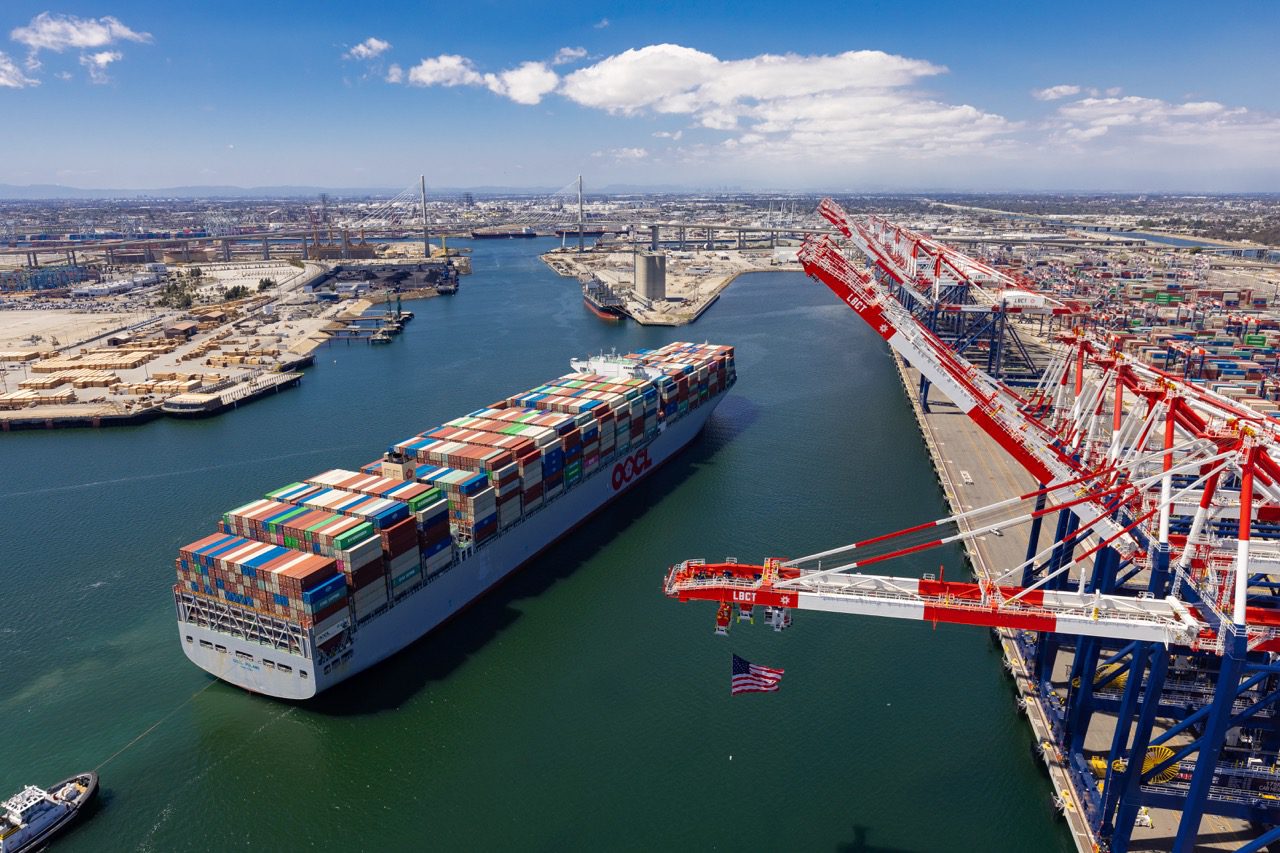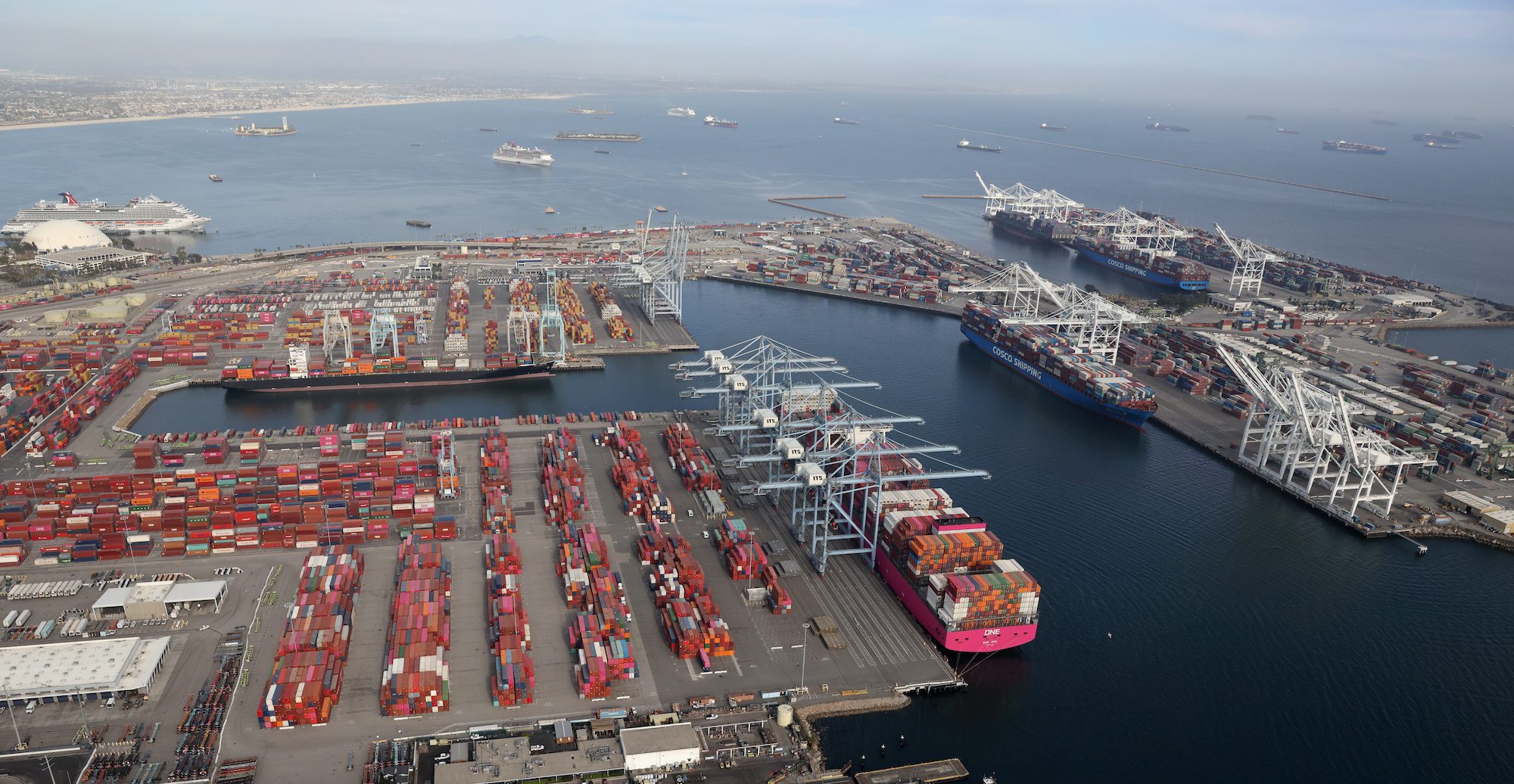An early peak shipping season has propelled the Port of Long Beach to its second-busiest August on record and sixth-busiest month in its 114-year history, as retailers rushed to receive goods purchased during a recent pause in tariffs.
The port processed 901,846 twenty-foot equivalent units in August, down just 1.3% from the record set in August 2024. Imports declined 3.6% to 440,318 TEUs, while exports decreased 8.3% to 95,960 TEUs. Empty containers increased 3.7% to 365,567 TEUs.
“Shifting trade policies continue to create uncertainty for businesses and consumers,” said Port of Long Beach CEO Mario Cordero. “Our Supply Chain Information Highway digital tracker is projecting our peak shipping season to be on pace with last year as retailers start to stock their warehouses in preparation for the winter holidays.”
Long Beach Harbor Commission President Frank Colonna added, “I commend our dockworkers for their continued hard work to keep goods moving through the Port during the peak shipping season. Our reputation as a primary gateway for trans-Pacific trade relies on our ability to safely ensure the secure and speedy shipment of goods.”
Year-to-date, the port has moved 6,592,708 TEUs through the first eight months of 2025, representing an 8.3% increase compared to the same period last year.
The positive port performance comes amid continued volatility in global shipping. Container rates have fallen for 13 consecutive weeks, with Drewry’s World Container Index dropping 3% to $2,044 per forty-footer.
Tariff uncertainty continues to disrupt trade patterns. Trump has delayed his next China tariff hike to November 10, while India now faces a 50% levy. Adding to the complexity, a federal court recently ruled tariff powers unconstitutional, though duties remain in place pending Supreme Court review.
Industry forecasts suggest challenging months ahead. After July volumes reached 2.36M TEU (the second-busiest month on record), the NRF/Hackett forecast projects September down 6.8% year-over-year, October down 13.2%, and December down 20.1% – which would represent the weakest performance since March 2023.
With oversupply pressuring rates downward while tariffs inflate costs, shippers face continued market volatility, with only brief potential relief during China’s upcoming Golden Week holiday.
Editorial Standards · Corrections · About gCaptain

 Join The Club
Join The Club











